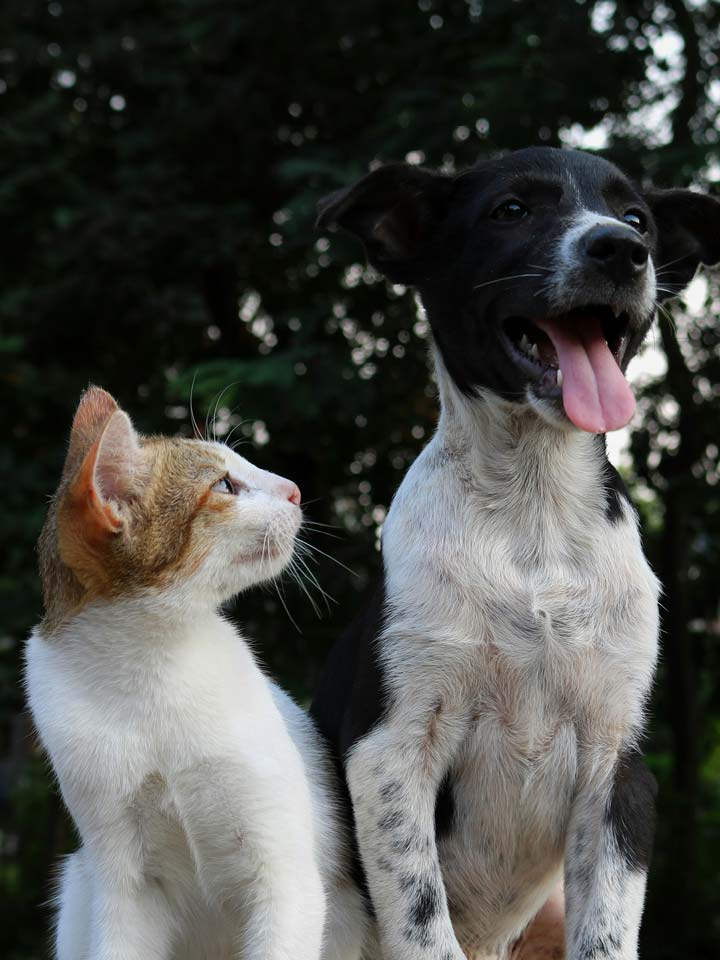Common Pet Health Myths Debunked by a Veterinarian in St. Charles
Think your pet doesn’t need check-ups or that bones clean teeth? Think again. A trusted veterinarian in St. Charles debunks common myths to help you make better choices for your pet’s health.
Common Pet Health Myths Debunked by a Veterinarian in St. Charles
As loving pet owners, we all want what’s best for our furry companions. But with so much information circulating online and from well-meaning friends, it’s easy to fall for misleading advice. Today, a trusted veterinarian in St. Charles helps you separate fact from fiction by debunking some of the most common pet health myths. If you're searching for a reliable vet near you, this guide will help you make smarter, safer choices for your pet's care.
Common Pet Health Myths (Debunked)
Myth 1: Pets don’t need regular vet check-ups
While it might seem like your pet is doing just fine, skipping annual visits can lead to undetected health issues. Regular check-ups at a vet hospital in St. Charles are essential for tracking your pet’s health, updating vaccinations, and catching early signs of illness. Preventive care is always better—and often cheaper—than treatment after the fact.
Myth 2: Dogs naturally clean their teeth by chewing bones
Although chewing might remove some surface plaque, bones can actually pose serious risks—such as broken teeth, choking, or intestinal blockages. A veterinarian in St. Charles can recommend safer dental care options like vet-approved chews, dental diets, or professional cleanings.
Myth 3: Cats don’t need vet visits because they’re independent and always land on their feet
Cats are masters at hiding illness. Even indoor cats are prone to problems like obesity, dental disease, and kidney issues. Routine check-ups and parasite prevention are just as important for cats as they are for dogs. Your local vet near you can tailor wellness plans to your cat’s specific needs.
Myth 4: Feeding pets human food or table scraps is harmless
Some human foods—such as chocolate, garlic, grapes, and onions—are toxic to pets. Even foods that seem “safe” can lead to digestive problems or long-term health issues. A veterinarian in St. Charles can help you create a balanced, species-appropriate diet that supports your pet’s health and lifestyle.
Myth 5: “Natural” or “organic” means it’s safe for pets
Not all natural products are pet-safe. In fact, some essential oils and plant-based ingredients can be harmful—even in small amounts. Before using new treats, supplements, or grooming products, consult with a vet near you to make sure they’re truly safe for your pet.
Myth 6: Pets don’t need exercise if they have a big yard
A large space might offer room to roam, but it doesn’t replace structured activity. Without daily physical and mental stimulation, pets can become overweight, bored, or anxious. Your local vet hospital in St. Charles can recommend an ideal exercise routine based on your pet’s age, breed, and health.
Final Thoughts
Misinformation—however well-intended—can lead to serious consequences for your pet’s health. That’s why it’s always best to rely on expert, science-backed advice. At our vet hospital in St. Charles, we believe educated pet parents are empowered pet parents.
If you're looking for a compassionate and knowledgeable veterinarian in St. Charles, we’re here to support you and your pet every step of the way—from wellness exams to nutrition advice, and everything in between.

When you entrust your pet's care to our team of dedicated veterinary professionals, you can have peace of mind knowing that they are in caring and capable hands.
We are honored to be a part of your pet's journey to a healthy and happy life, and we'll look forward to welcoming you to our Kindred Pet Care family.
Join us in the journey to create a world where animals are cherished and cared for with love and compassion.
We care.
Book an appointment


